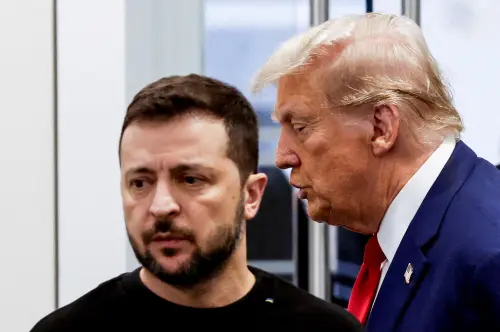The Hague, Feb 27 (Reuters) - Four experts shared concerns about legal gaps in a framework agreement between the U.S. and Ukraine regarding U.S. access to Ukraine's natural resources in exchange for security guarantees ahead of their meeting in Washington.
The agreement involves establishing a joint U.S.-Ukraine-managed "Reconstruction Investment Fund." However, the United States falls short of providing Kyiv with the security assurances it seeks.
Expected to be finalized on Friday during the meeting between U.S. President Donald Trump and Ukraine's Volodymyr Zelenskiy, the deal proposes that Ukraine contribute 50% of future monetization of state-owned natural resource assets to the fund but lacks specific details on amounts, timelines, and fund management.
Brian McGarry, an assistant professor of international law at Leiden University, noted that this framework sets the stage for future negotiations without firm defense commitments from the U.S., explaining, "It creates obligations to cooperate, but it does not have any binding specific commitments of a defense nature."
Despite the absence of explicit security guarantees, one anonymous diplomatic source described the document as a mutually favorable agreement.
Furthermore, the agreement, emphasizing reinvestment "to promote the safety, security and prosperity of Ukraine," is viewed by experts as a positive step, although lacking clarity on long-term financial commitments from the U.S.
While acknowledging the need for further negotiations to finalize crucial details, McGarry highlighted an interesting element in the document regarding support for Ukraine's EU aspirations when addressing future financial distributions.
The agreement aims to recover U.S. investments in Ukraine and reduce reliance on Chinese resources, particularly rare earth elements. However, uncertainties remain regarding dispute resolution mechanisms and Washington's share in the fund, requiring congressional approval for a finalized fund agreement.
Guillermo Christensen, a national security and international trade expert at U.S. law firm K&L Gates, praised the unique and unprecedented approach of the framework, highlighting its distinctiveness from other national agreements.
